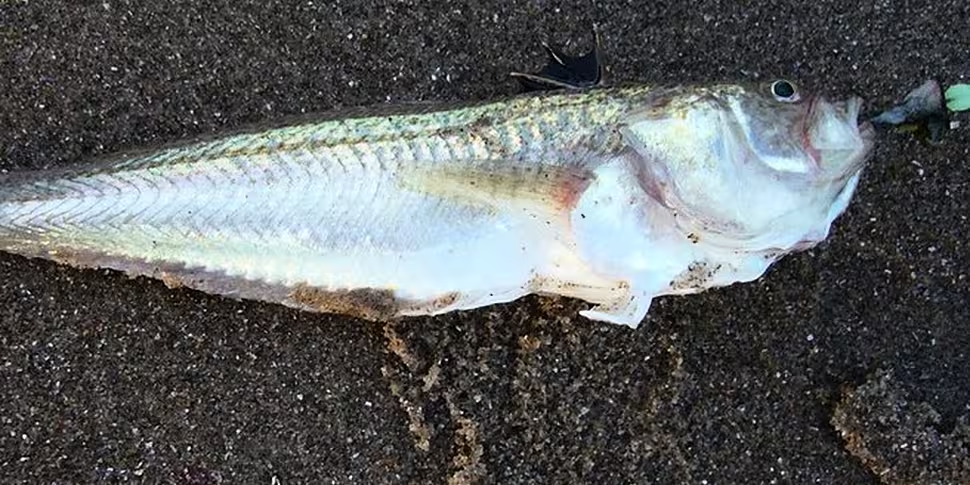Irish Water Safety has issued a warning to swimmers, surfers and all beach users over the Bank Holiday weekend about weever fish.
These sandy-coloured fish spend most of their time buried under the sand with just a black dorsal fin poking up, and while they may look innocent enough they can cause excruciating pain to anyone who is unfortunate enough to step on them.
Weever fish are usually found all around the Irish coast in sandy areas where the water is warm and shallow.
The new moon on Tuesday has given us 'spring tides', which means that swimmers and surfers will have to venture further out on the beach in to the area where the weever live.
Irish Water Safety has issued advice to the public to prevent getting stung by the fish:
- Avoid swimming approximately one hour to two hours either side of low water until later next week
- Be sure to wear flip flops or sandals when walking on the beach close to low water
If you are unlucky enough to step on their fin, the sting will cause a lot of pain, but don't worry it will not cause permanent damage.
The feeling will be most intense for the first two hours when the foot normally goes red and swells up, and then it may feel numb until the following day with irritation and pain that may last for up to two weeks.
Sometimes, the spine breaks off in the foot and it will cause discomfort until it is removed.
The main danger is the risk of anaphylactic shock or allergic reaction to those who are vulnerable.
People who have been stung can take painkillers to alleviate the pain, and medical attention should be sought if they begin to develop an allergic reaction.
If you are away from a beach without a lifeguard get the area which has been stung into hot water as soon as possible. This will increase blood flow and assist natural cleaning and healing. The heat also helps to break down the poison, once the temperature is over 40 degrees.









